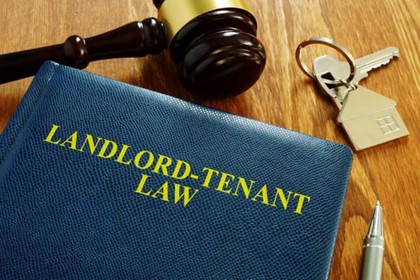
Who Is Responsible For Mold Remediation – Primary Homes – Homeowners or Insurance; Rentals – Landlord or Tenants?
Nothing is scarier than finding mold in your home. If you are a homeowner, you might be wondering if mold remediation is covered by your home insurance. If you rent your home, you might be wondering if the landlord is responsible.
Homeowners: Is mold remediation covered by your homeowners insurance?
In this article we will discuss both scenarios.
Homeowners insurance is designed to cover you against various types of damage, but you might wonder if your coverage includes mold. It’s a good question to ask, especially if you’re purchasing an older home and want to avoid any potentially costly surprises.
Your homeowners policy may cover you if mold results from any of the following:

- Water leaks associated with a malfunctioning appliance
- Water damage caused by a burst hot water heater
- Water damage caused by firefighters extinguishing a fire in your home
In these instances mold would be “resulting damage” from a covered peril. It’s important to distinguish between resulting damage and initial damage. For example, if your water heater breaks and a leak causes mold to form in the walls, then your policy might pay for the walls to be repaired and the mold to be removed but not for the replacement of the hot water heater.
In some cases mold can grow as a result of water damage from flooding or a severe storm. If you have a flood insurance policy and your home is flooded due to heavy rains, a hurricane, or another act of nature, then your policy may extend to mold removal and repairs necessitated by flooding.
Rental Tenants: Is your landlord responsible for the costs associated with mold remediation?
There is currently no federal law covering a landlord’s responsibilities when it comes to mold.
Also, Maryland doesn’t have any laws that specifically address a landlord’s duties or liability when it comes to mold prevention and remediation.
However, tenants who believe they have been harmed by the presence of high concentrations of mold in their apartment can try to recover damages from their landlord in court to compensate them for their loss. If a judge or jury agrees that the landlord negligently created a mold problem or allowed one to continue at a property, the landlord could be on the hook for any harm.
For example, a Montgomery County, MD, tenant complained to her landlord about high levels of mold in her apartment shortly after she moved in. According to the tenant, the landlord failed to respond, causing illness to the tenant’s family and damage to her personal property, forcing the tenant to break her lease before the one-year term expired. After refusing to make further rent payments, the tenant sued the landlord for breach of contract, claiming that the landlord failed to maintain her apartment in a reasonably safe condition. A jury found the landlord liable and awarded the tenant $19,400 in total compensatory damages, and an appeals court ruled that the tenant is also entitled to reasonable attorneys’ fees (Beverly Allen v. Breck Ridge Partners, LLC, No. 0758/14 (Md. Ct. Sp. App. 2014)).
We hope these scenarios help you understand who pays for mold remediation in Maryland.
Disclaimer: Please keep in mind that the information provided in this blog is strictly informative and should not be considered as legal advice.

Recent Comments